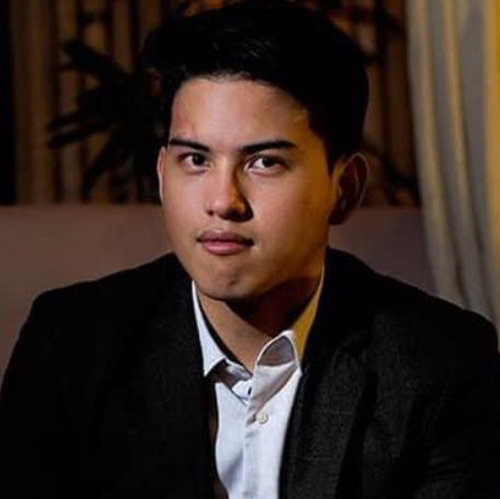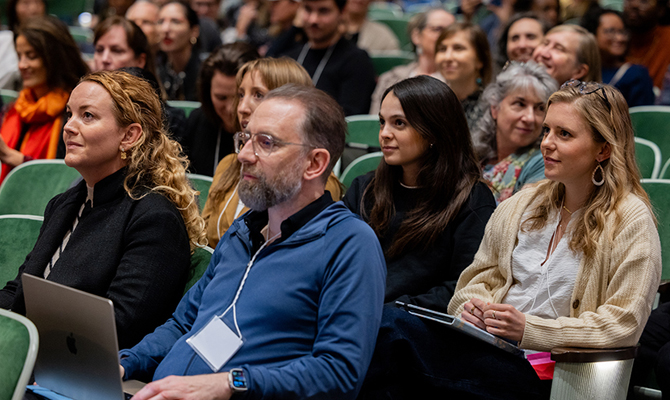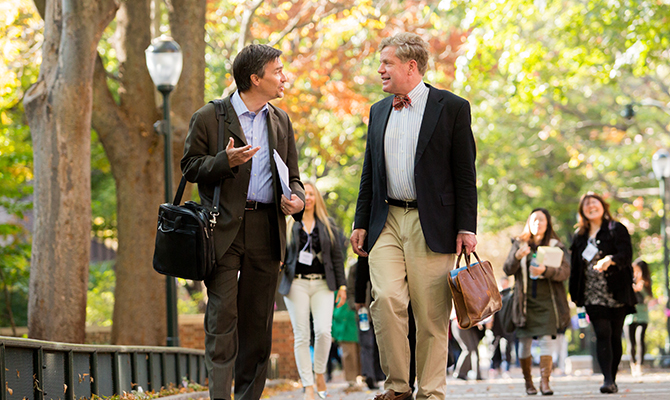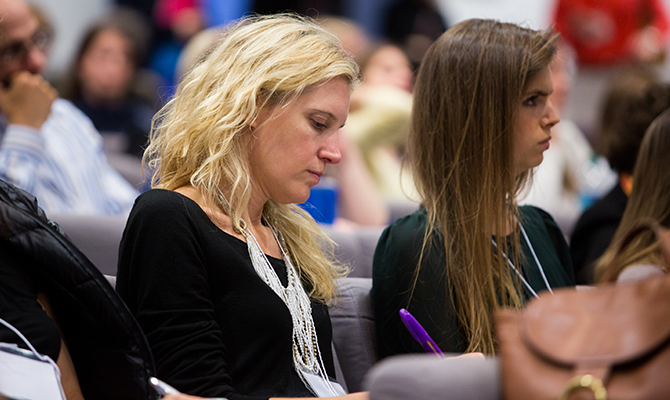
Manager of Learning and Organizational Development, NCSA College Recruiting
Master of Applied Positive Psychology, University of Pennsylvania ’21
Bachelor of Arts in Psychology, Carleton College ’13
Anton Ledesma (Master of Applied Positive Psychology `21) first encountered positive psychology as an undergraduate studying abroad in Copenhagen—which, he notes, has continuously been listed as one of the happiest cities. The experience “changed the way I looked at life and the way I wanted to pursue my studies,” he recalls. “I wanted to explore how I could apply the science of well-being and human flourishing.” Anton found those opportunities in consulting and coaching, and started his career facilitating workshops and interventions designed to promote creativity and positive emotions at work. “I considered myself knowledgeable about positive psychology, but there is just so much more to know,” he says of his decision to pursue the Master of Applied Positive Psychology (MAPP) program. “I knew that Penn is the epicenter for applied positive psychology research, and I wanted to be in a space where I could be at the cutting edge.”
According to the Values In Action survey, one of Anton’s top character strengths is the love of learning—but the thirst for knowledge isn’t the only reason he wanted to dive into graduate studies. “Number one is that I know the value of community,” he says. “I wanted to find people who are like-minded about helping people thrive and be their best selves—through the lens of science.” During Anton’s cohort, the regularly scheduled on-site programming had been temporarily suspended due to the pandemic, and at first, Anton was skeptical that his fully-online experience would deliver the same sense of community. Once he began learning and collaborating alongside lawyers, entrepreneurs, wellness practitioners, executives, educators, and other professionals from all around the world, he found the galvanizing community he was hoping for. “The most impactful part of the program was the amazing people that we met, the shared journey that we had, and the meaningful relationships that we continue to have, even after graduating,” he says. “For nine months, we only saw each other virtually, and I can tell you right now that some of the bonds I built in our cohort group are deeper than friendships I've had that spanned years. It was a most remarkable experience, and I would gladly do it again.”
Anton also found the scientific rigor he sought—and more. “I had the impression that science was the magic pill that could solve all the world’s ills,” he reflects. “Science does give positive psychology research and interventions a lot of legitimacy. But it is just one part of the equation.” For example, Anton’s service learning project team collaborated with an organization called Shining Light that supports incarcerated individuals around the United States; they created humanities-based interventions involving music and performance to teach important resilience skills in that community. “It taught me that people are complex and there’s a lot more work to be done,” he says. “We can keep discovering better ways to help people flourish."
For his capstone project, Anton explored what creates a culture of burnout versus a culture of flourishing in the workplace. He created a model for what has to be in place for flourishing to happen.
“In order for an organization to be an engine of well-being that allows for people to flourish, they have to have a positive ethos—a culture that is virtuous, that looks out for their people, and that has a purpose beyond profit,” he explains. In addition, “We need to invest in people. We need to give people enough personal resources to be successful: good training, opportunities to grow within the organization, skills and knowledge that they can draw on to thrive. The most important aspect for me, though, is that you have to have the right systems in place for people to properly utilize those resources.” For example, he says, a mindfulness meditation practice isn’t helpful when what employees need are fewer hours or more vacation time; resilience training can help staff adapt to challenging work, but not if they aren’t adequately compensated and supported by the organization.
In addition to his work in leadership and development, Anton has been applying some of those insights to his passion project: advising leaders and entrepreneurs in the Philippines, where he grew up. “Rather than just creating a culture where people are productive, we try to make a culture where people feel fulfilled,” he says. “I think if leaders of organizations and people know about the science of well-being, they can advocate for the resources to implement programs.” He is also collaborating with fellow MAPP alumni on technology and AI-enabled strategies to translate positive psychology research for a broader audience.
The year and a half he spent in the program “was one of the most meaningful experiences that I’ve ever undertaken,” Anton concludes. “Where I want to spend my time in the future is: how can I bring this valuable knowledge and these practices to the people who need it most?”






